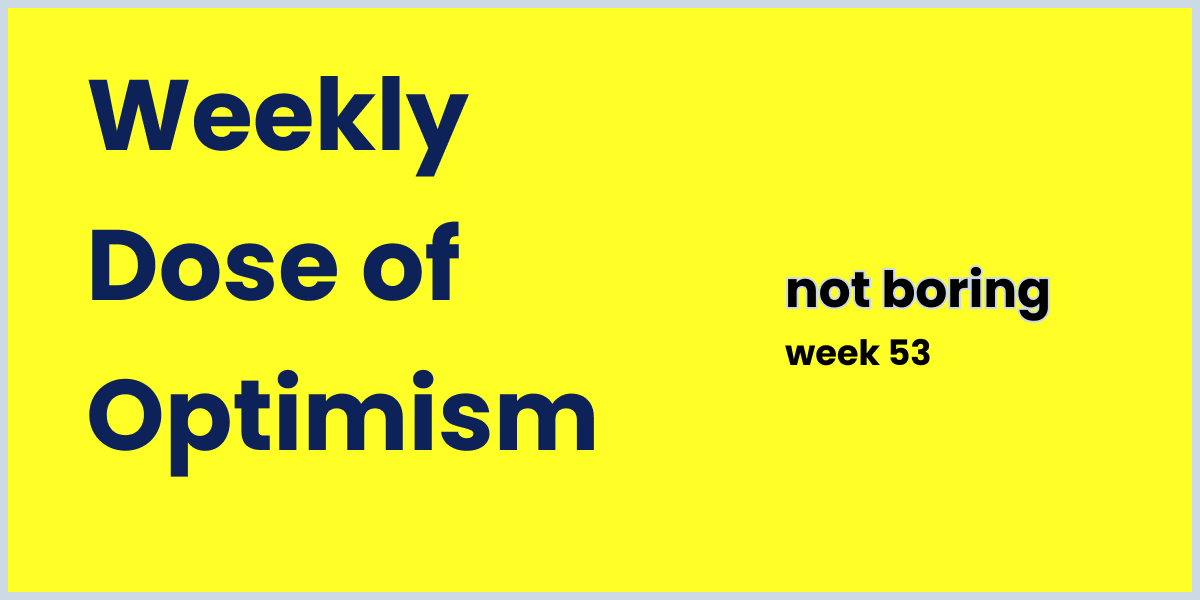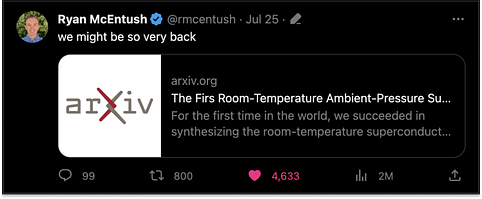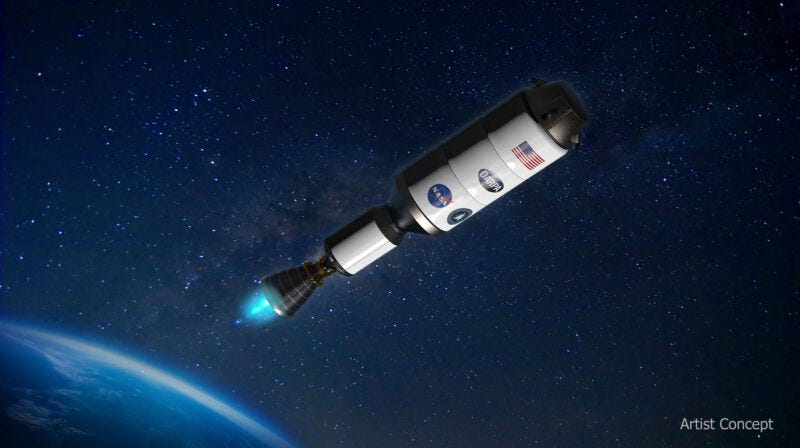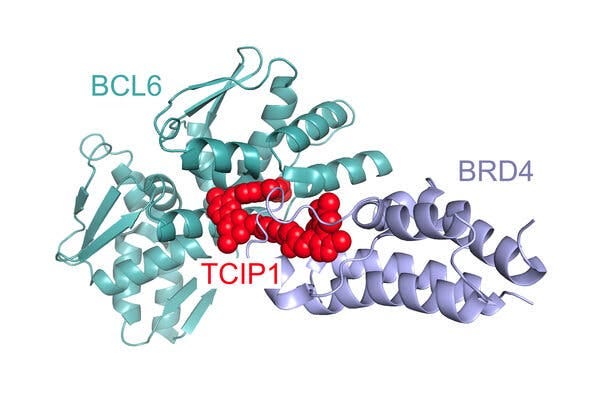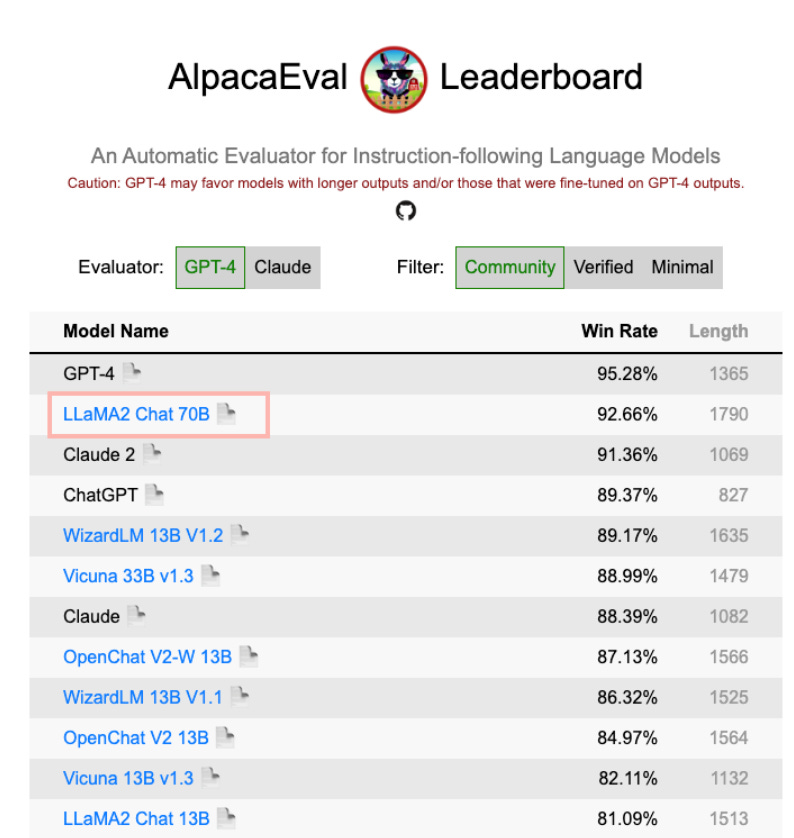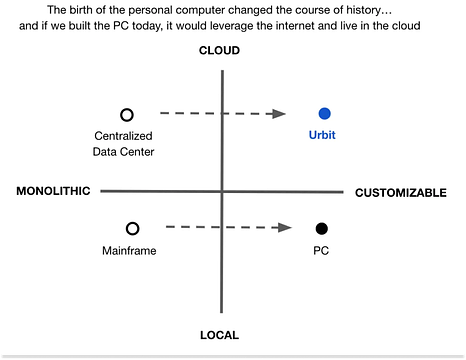Not Boring by Packy McCormick - Weekly Dose of Optimism #53
Weekly Dose of Optimism #53Superconductors, Anduril, Nuclear Rockets, Self-Destructing Cancer Cells, LLaMA2, UrbitHi friends 👋, Happy Friday and welcome back to our 53rd Weekly Dose of Optimism. What. A. Week. Are aliens real? Are room-temperature superconductors real? Whatever the outcome, the excitement is palpable. The timeline is electric. Let's get to it. The Weekly Dose is brought to you by… Oceans Oceans is a white glove outsourcing firm purpose built to help small businesses, busy executives, and high growth companies easily find and work with high quality EA+’s. All Oceans talent comes from Sri Lanka. Why Sri Lanka? Simple: it has the best talent-to-price ratio on the planet. Oceans recruits, vets, trains, and employs top talent in the region from name brand firms and universities. Folks like Sajay and Nihara (above) would fetch $100K+ salaries in the US, but with Oceans you can hire them as an EA+ for a fraction of the cost. Oceans is already serving notable clients like Austin Reif (Morning Brew), Ndamukong Suh (Philadelphia Eagles), Nik Sharma (Sharma Brands) and hundreds of other high growth operators. More than 30 Not Boring readers have already hired an EA+ through Oceans. If you’re looking to level-up your productivity, check them out today. (1) The First Room-Temperature Ambient-Pressure Superconductor
Packy here. On Tuesday, a group of South Korean scientists dropped a paper on arXiv claiming that they’d created the world’s first room-temperature ambient-pressure superconductor. If you’re new to the Superconductor Fan Club, like me and thousands of others, this June thread from fusion engineer Andrew Cote gives a great overview, and some reasons to get excited:
On Tuesday morning, I didn’t really know what room-temperature superconductivity was. Three days later, I deeply understand that it is the most important material in the world and the fate of humanity rests on whether or not the paper’s results replicate. I first heard about it from Ryan McEntush’s tweet: Since that tweet, we’ve whiplashed between “we’re so back” and “it’s so over” at internet speed. From “it’s just simple diamagnetism” to “the paper’s authors have to believe this is real because three of them broke from the six-person group to rush print a paper with only three authors because the Nobel can only be shared by three people” to “wait we’re back again there’s a peer reviewed paper from April in Korean that has better graphs” to “it’s probably just a cool magnet.” The latest is that a team from MIT has flown to South Korea to work with the papers’ authors on replicating. No idea how this is going to turn out. It’s been fun following Ate-a-Pi and Alex Kaplan for the latest developments. The reason I wanted to lead off with this story isn’t that I’m sure this is a RTSC and the world is going to change forever, but because it’s been so cool getting to watch this all play out live on Twitter (X?). There’s been a pragmatic optimism around the whole thing that I don’t think would have been there a year ago. Non-scientists are getting hyped about materials science and physics. Materials scientists and physicists are sharing what they know with a balance of optimism and skepticism. Everyone is rooting for replication. We’re getting to see the scientific process play out in real-time. And some people are even trying to replicate themselves. Varda engineer Andrew McCalip is leading a group of engineers in trying to replicate the results at Varda’s facility after-hours: Meissner Effect or Bust. They’re livestreaming on Twitch (2,014 people watching now, down from 16k before their wifi went down). I hope they’re able to replicate. Room-temperature superconductors could unlock a lot of sci-fi tech and improve a lot of peoples’ lives. But either way, this kind of enthusiasm is great to see. It’s like the I-95 rebuild for science. We’re getting excited about the right kind of things again. Superconductor or not, we are so back. (2) The Startup Trying to Prevent World War 3 
Speaking of getting excited about all the right things again… Founders Fund EIR John Coogan tells the Anduril story masterfully in this 42 minute Youtube video, with exclusive access to company execs, government insiders, and investors. Founded over six years ago, the company faced harsh media scrutiny for working with the DoD at a time when many tech companies (particularly their employees) thought that was a morally wrong thing to do. Then Russia invaded Ukraine, and ensuring that America had access to the best technology the world had to offer became an Obviously Good Thing. Anduril used that uncertainty window to build out an AI-powered operating system, Lattice, and a range of hardware products built for modern warfare. Those products are proving to be the right tools for the kind of war being fought in Ukraine. It’s also hired a team of mission-minded technologists who want to work on a Good Quest but would never work somewhere like Lockheed Martin or Northrop Grumman. If you’re a young ambitious technologist, would you rather work at Google getting people to click links or Anduril building the technologies that could protect your country from harm? U.S.A. U.S.A. U.S.A. Now that what Anduril is doing is obvious, it’s well on its way to becoming the sixth Defense Prime by offering capabilities that the other five can’t. John tells the story better than we will, so put down the PinkyDoll and watch the doc this weekend. (3) The US government is taking a serious step toward space-based nuclear propulsion
Speaking of prime contractors, NASA announced that it will be launching a nuclear-powered rocket engine into space in the next couple of years, in partnership with DARPA, Lockheed Martin, SpaceX, and a number of other governmental agencies. Traditional chemical propulsion is great for getting rockets off the ground, but is not terribly efficient for solar system exploration because fuel is heavy. Nuclear propulsion, on the other hand, has the potential to be far more efficient and would enable longer and farther expeditions… like Mars. This nuclear propulsion system is what NASA is betting us will get us to Mars. Of course, a lot has to go right both with this initial and subsequent tests. Namely, you know, nuclear reactions in space. But these are the types of big swings we love seeing NASA and its partners take. Plus, it might provide another push to turn public opinion on nuclear towards reality before it’s too late. (4) Rewiring cancer drivers to activate apoptosis
A team of Stanford researchers have developed a concept for making cancer cells self-destruct. In a new paper published this week in Nature, the team explained how we could hook cancer driving molecules to other molecules in a way that would cause self-destruction. Essentially, we could turn the molecules that drive cancer growth into cancer killers. I am few IQ points and a couple of decades of education away from truly understanding how all of this works. And according to the researchers, we’re still a bit of a ways off from transforming this concept into a drug that could save lives. But the molecular concept (pictured above) is novel in that it has never appeared before in nature and could potentially work on half of all cancers. (5) LLaMA2 Chat 70B vs. ChatGPT Last week we covered how Meta was open sourcing its large language model, Llama2 — essentially giving away for free what OpenAI has built its business and reputation around. Now, a Llama-based chat bot (which you can check out on Hugging Face here) is reportedly outperforming the standard ChatGPT. OpenAI’s more advanced GPT-4 model still outperforms the LlaMA2 Chat 70B. For how long, though? Only time will tell. Tracking the ins-and-outs of LLM performance is not exactly our beat here at Not Boring. There are hundreds (now thousands?) of AI-specific newsletters that have popped up to do that in recent months. But, it is wild to see the rise of competition and the speed of progress in such a nascent space. ChatGPT shocked the world just 8 months ago, and now there are a plethora of well-resourced and performant alternatives. Open-source foundation models competing with closed ones should be a boon for innovation in the space and a counterbalance against centralized control of the digital brains. Bonus: An Investor's Introduction to Urbit - Part 1 By Basho
Packy here again. Last year, we invested in Tlon, the core developer of Urbit, the… it’s complicated. Urbit is one of the most ambitious software projects ever created. It’s a personal computer in the cloud and a personal state machine. It has its own language, Hoon, and offers a dramatically simpler way to develop software by removing the need for DevOps. It has social features built in, but it’s not a social network. Basho, the pseudonymous author of this piece, wrote the best Urbit explainer I’ve come across yet. In one sentence, he writes, “Urbit is what the personal computer would look like if it had been built from first principles today.” Then he dives deeper to explain Urbit for both crypto-natives and everyone else. What I like most about the piece is that Basho gets as specific as possible about Urbit’s benefits. “Data sovereignty” is cool, for example, but most people don’t care about data sovereignty on its own. They care about it only as far as it can provide a better experience: “The insight here is that data sovereignty, while valuable in its own right, is actually a prerequisite for this improved computing experience.” The Urbit rabbit hole is deep. Basho’s piece (with more to come) is a good place to dive in. That’s all for this week. We’ll be back in your inbox on Tuesday. Thanks for reading, Dan + Packy |
Older messages
In Defense of Strategy
Tuesday, July 25, 2023
Channeling Execution in the Right Direction
Weekly Dose of Optimism #52
Friday, July 21, 2023
South Park AI, Llama 2, Geothermal, Alzheimer's, Molecular Manufacturing
When to Dig a Moat
Tuesday, July 18, 2023
Uncertainty, Success, and Defensibility
Weekly Dose of Optimism #51
Sunday, July 16, 2023
Are We Back?, Hard Things, Charm Industrial, Astranis, x.ai, Regfluencers
Praise Elon
Tuesday, July 11, 2023
Elon is Killing Twitter to Save Us All
You Might Also Like
🔮 $320B investments by Meta, Amazon, & Google!
Friday, February 14, 2025
🧠 AI is exploding already!
✍🏼 Why founders are using Playbookz
Friday, February 14, 2025
Busy founders are using Playbookz build ultra profitable personal brands
Is AI going to help or hurt your SEO?
Friday, February 14, 2025
Everyone is talking about how AI is changing SEO, but what you should be asking is how you can change your SEO game with AI. Join me and my team on Tuesday, February 18, for a live webinar where we
Our marketing playbook revealed
Friday, February 14, 2025
Today's Guide to the Marketing Jungle from Social Media Examiner... Presented by social-media-marketing-world-logo It's National Cribbage Day, Reader... Don't get skunked! In today's
Connect one-on-one with programmatic marketing leaders
Friday, February 14, 2025
Enhanced networking at Digiday events
Outsmart Your SaaS Competitors with These SEO Strategies 🚀
Friday, February 14, 2025
SEO Tip #76
Temu and Shein's Dominance Is Over [Roundup]
Friday, February 14, 2025
Hey Reader, Is the removal of the de minimis threshold a win for e-commerce sellers? With Chinese marketplaces like Shein and Temu taking advantage of this threshold, does the removal mean consumers
"Agencies are dying."
Friday, February 14, 2025
What this means for your agency and how to navigate the shift ͏ ͏ ͏ ͏ ͏ ͏ ͏ ͏ ͏ ͏ ͏ ͏ ͏ ͏ ͏ ͏ ͏ ͏ ͏ ͏ ͏ ͏ ͏ ͏ ͏ ͏ ͏ ͏ ͏ ͏ ͏ ͏ ͏ ͏ ͏ ͏ ͏ ͏ ͏ ͏ ͏ ͏ ͏ ͏ ͏ ͏
Is GEO replacing SEO?
Friday, February 14, 2025
Generative Engine Optimization (GEO) is here, and Search Engine Optimization (SEO) is under threat. But what is GEO? What does it involve? And what is in store for businesses that rely on SEO to drive
🌁#87: Why DeepResearch Should Be Your New Hire
Friday, February 14, 2025
– this new agent from OpenAI is mind blowing and – I can't believe I say that – worth $200/month
